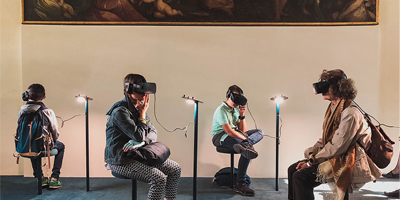“I can’t do pro bono work”

While many law students are very excited to (finally) get chance to put their hard won legal knowledge and skills into practice through voluntary legal work, others are extremely worried about the prospect. During my six years of supervising students in the Open Justice law clinic, I have met students very enthusiastic about volunteering but also those who lack confidence or are concerned about their skills or ability to carry out individual client advice work. In all honesty, this is no different to when I was in legal practice and discussed with my colleagues pro bono opportunities: while some were very committed and passionate about this work, others worried about their lack of knowledge of social welfare law or as commercial lawyers felt unprepared when faced with a vulnerable client. So how should we respond when students or lawyers say they cannot carry out pro bono work?
Pro bono is Latin term meaning ‘for the public good’ and usually refers to free legal advice and assistance given to individuals (or sometimes organisations) who cannot afford legal help. Many of the discussions during pro Bono Week 2023 will focus on the provision of legal advice to individuals in law clinics: in 2022 there were nearly 69,000 enquiries to law clinics associated with LawWorks, dealt with by over 11,000 volunteers (1) Most law clinics and pro bono organisations offer excellent training, support and supervision to volunteers which can offer valuable reassurance or the opportunity to refresh knowledge and skills. However there is another option: what is often overlooked is that pro bono work is extremely varied and there are a variety of different opportunities available to law students and solicitors outside the law clinic environment.
The Law Society of England and Wales lists six types of pro bono work in its ‘Introduction to Pro Bono’.(2) Two are very familiar – one off legal advice sessions, and representing clients in court proceedings. However the remaining four may be less well known: working with not-for-profit organisations, preparing documents, international work and research. These types of pro bono work require different knowledge and skills, and often do not require direct individual client case work. However the outcome of this voluntary work can have a huge impact on both individuals and organisations. It also offers students (and solicitors) the opportunity to develop a different skill set while benefiting those who need legal help.
Sine the Open Justice Centre started in 2017 it has always offered alternative forms of pro bono work alongside clinical projects. However we expanded the range of available projects since 2019 and have found these different opportunities are attractive to students and welcomed by the not-for-profit organisations we partner with. This blog will explore five of these projects in order to show the breadth and value of pro bono work.
From 2017 onwards law students have worked on public legal education projects, developing documents and carrying out presentations about the law to a wide variety of individuals and groups. This has included interactive sessions for school children, prisoners and community groups, as well as developing written guidance for organisations. We have worked in partnership with Young Citizens, St Giles Trust SOS+ and (this year) the Prison Advice and Care Trust. The resources created have been used across the country by hundreds of service users, and students have enjoyed the challenge of explaining complicated legal concepts clearly and simply: “My best advice is to be yourself, remember the children are just as nervous as you, also try not to use complicated words, speak to the children in their own language”.

In 2019 the digital justice project started to offer students an opportunity to use technology to support the public understanding of law. Students design and build apps and chatbots that provide legal information to the public on a specified legal topic such as housing repair, divorce and domestic abuse law. Students need to use research skills to identify the legal issues before they start designing their solution using the principles of human centred design. Students also felt this improved their communication skills: “I have learnt multiple things from this project but the most important thing I learnt was adapting to the audience.”

In 2019 the online policy clinic also began, giving students the opportunity to carry out legal policy and advocacy work for a charitable or third sector organisation. Students have completed comparative and empirical research into the operation of the law and analysed it to offer recommendations for law reform. This offers students the ability to use their research and analytical skills to help not-for-profit organisations who otherwise would not be able to evidence the impact of the law on their service users. One student felt this gave “an unexpected but most welcome opportunity to become curious, explore and understand” areas of law they had not encountered before. Students have worked with charities such as RNIB, JustRight Scotland and the Environmental Law Foundation, and organisations such as the Scottish Sentencing Council to research areas of law as varied as animal and housing law, criminal law, weddings law and the law regulating youth work.

The International Law project started in 2020 to offer students the opportunity to experience practical legal work with an international human rights law and / or international humanitarian law focus. Students work on a brief supplied by an international non-governmental organisation, a community, or a group of individuals on topics as diverse as customary international law of the law of occupation, state practice during the conflict in the former Yugoslavia, how a ‘community development fund’ could be established by the African Court of Human Rights or the deportation and transfer of protected persons in Ukraine. The work draws on a wide variety of skills as students carry out legal research, review documentation, take witness statements, or draft a document.
Our most recent project, the law reform clinic, started this academic year and offers students the opportunity to carry out research into an area of law which is being considered for law reform by the Law Commission and to make recommendations for reform. This will enable students to enhance their understanding of how the law is made and amended, explore ways in which the law can impact unfairly on individuals, and identify ways in which the law can be improved. These are all valuable skills different to those usually developed through more traditional legal advice work. Students also have the opportunity to influence changes in the law for the benefit of a wide range of individuals, as their reports and recommendations will be forwarded to the Law Commission as part of their consultation process.
Given the range of pro bono work available, most law students and legal professionals will be able to find a voluntary project which suits their background, personality, knowledge and skills while helping those who otherwise would not be able to get legal assistance. So the next time someone says that they can’t do pro bono work, why not share some of the amazing work done by our OU law students or suggest they research the wide range of requests for pro bono work experience volunteers?
(1) LawWorks (2023) LawWorks Clinics Network Report 2022 Available at LawWorks Clinics Network Report 2022 | LawWorks (accessed 2 November 2023)
(2) Law Society (2019) Introduction to Pro Bono Available at Introduction to pro bono | The Law Society (accessed 2 November 2023)

Liz Hardie
Liz is a senior lecturer-in-law at the Open University Law School. She has worked as part of the Open Justice Centre since 2016, supporting law students to carry out pro bono projects both as part of their law degree and on an extra curricular basis.
Liz leads the open justice law reform clinic and family law clinic and is a supervising solicitor in the online law clinic. She is particularly interested in online learning and the use of technology in legal education, including the moving of clinical legal education online.
